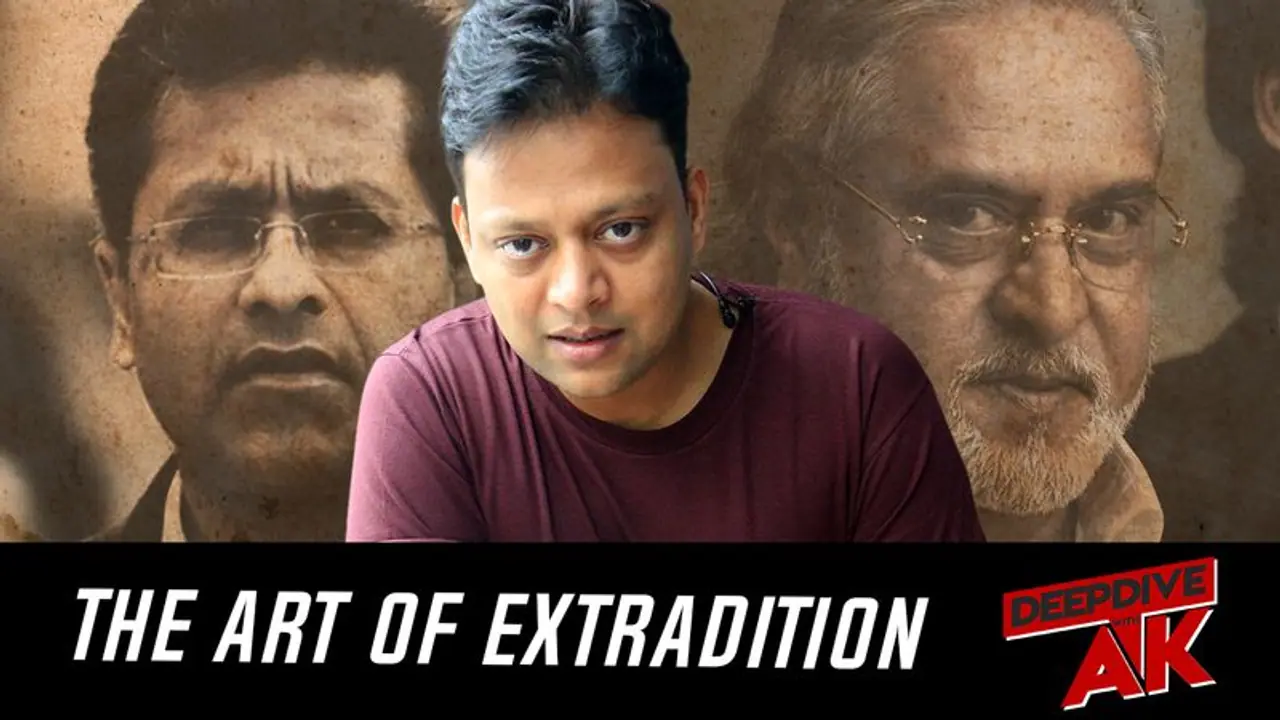India has had several unsuccessful attempts in bringing back offenders like Warren Anderson, Vijay Mallya, David Headley, etc. Abhinav Khare deep dives into the complexities of international law while extraditing fugitives from abroad.
“No one can outrun the long arm of the law”, we have heard this many a time. This implies that no matter where the offender is, our law and order system is so strong that he would eventually be brought to justice. However, with globalisation, crimes and criminals have also crossed the borders making it extremely difficult for us to catch hold of them owing to the complexities of international law.
Deep Dive with Abhinav Khare recalls the several unsuccessful attempts made by India in bringing back offenders such as Warren Anderson, Vijay Mallya, David Headley, etc. This has made it important for the country to understand the obstacles we face in extraditing fugitives from abroad.
Extradition is defined as the “delivery of an accused or convicted individual from the country he is found in, to another country that requests his extradition”. These processes are guided by numerous treaties and agreements, however, they come with huge time and resource consuming complexities. Presently, India has bilateral extradition treaties with 43 countries and extradition arrangements with 10 countries. This number is abysmally low even in comparison to China who has 50. India, in fact, fails to have extradition treaties even with its neighbors’ like China, Pakistan, Myanmar and Afghanistan.
Also read: Deep Dive with Abhinav Khare: True essence, significance of Independence Day in India
There are a few challenges to extradite offenders from abroad:
From or Beyond Treaties
Usually, extradition requests for political offenders are not entertained. Moreover, there could be a case of “double jeopardy” which basically means that if a person has been punished once, he cannot be punished again for the same offence. This is the problem we faced with David Headly, the mastermind behind the 26/11 attacks.
Procedural and Evidentiary Delays
Most often the lack of proper documentation and different procedural requirements of different countries result in unreasonable delays in extradition. When these reports fall below the expected standards required by the foreign courts, the extradition requests are rejected. This happened with the extradition for fraud against a British Indian couple, Jatinder and Asha Rani Angurala.
The Web of Bilateral Relations and Politics
Extradition is as much a political process as it is a legal process, if not the former exceeding the latter. It took nearly eight years for the Netherlands government to initiate the extradition process for NeilsHolck who was involved in the “Purulia Arms drop case” and was charged with the smuggling of weapons in India.
With the increasing complexities and the challenges of globalisation, offenders are now easily fleeing the country with nothing to hold them accountable. It is now imperative for the government to introduce reforms at the earliest to create a simpler yet watertight extradition mechanism.
About Abhinav Khare
Abhinav Khare is the CEO of AsiaNetNews Network and also the host of a daily show named Deep Dive with AK. AsiaNetNews is a leading media group of south India with highly valuable brands like AsiaNetNews, Suvarna News, Kannada Prabha, IndigoMusic, Indigo Radio, MyNation, NewsFast, IndigoXP Music lounges.
He is a proud father of two beautiful daughters and resides in Bengaluru with his loving family and a lifetime collection of books and gadgets. An avid traveller, he has already pinged more than hundred cities from 5 major continents around the globe.
A tech entrepreneur, who is passionate about policy, technology, economy and philosophy from ancient India. His favourite pastime is to research synergy between these facets of society. He earned his qualifications from the top 10 global universities; an MS Engineering from the ETH Zurich and an MBA Finance from the London Business School.
